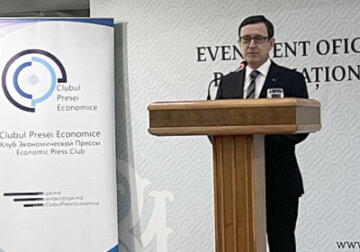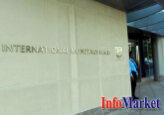
For the first time in the last 2 years, the NBM reduced the base rate applied to the main short-term monetary policy operations, reducing it by 1.5 percentage points - from 21.5% to 20% per annum.
This decision was made by the Executive Committee of the NBM at a meeting on 5 December. According to the President of the National Bank Octavian Armasu, in addition, interest rates on overnight loans and deposits have also been reduced by 1.5 percentage points - from 23.5% to 22% and from 19.5% to 18% per annum, respectively. Also, by the decision of the NBM, the norms of required reserves from funds attracted in lei and in non-convertible currency were reduced from 16 December 2022 to 15 January 2023 - from 40% to 37%, and from 16 January to 15 February 2023 - from 37% to 34% of the calculation base. At the same time, the norms of required reserves from funds attracted in convertible currency were kept at the level of 45% of the calculation base. The head of the National Bank stressed that the decision to resume monetary policy easing measures, to reduce the base rate and the rate of required reserves at the expense of funds attracted in Moldovan lei and non-convertible currency, was due to the confirmation of the correctness of the latest forecast of the NBM, as well as the associated disinflationary trend. Octavian Armasu noted that the current information confirms the main hypotheses, conclusions related to the NBM inflation report published in November, and the slowdown in annual inflation once again proves the correctness and timeliness of the NBM's actions, the restrictive nature of the monetary policy measures taken earlier. According to him, the current decision of the NBM was taken in the context of the prospect of a change in the trajectory of annual inflation after its maximum values in the fourth quarter of 2022 and the emergence of pronounced disinflationary pressure from aggregate demand against the backdrop of negative GDP deviations over the forecast horizon. Although the risks and uncertainties regarding inflation remain and are directly related to the course of events related to the military conflict in Ukraine, including their impact on the global and domestic macroeconomic environment. The head of the National Bank noted that the NBM, by its decision, is called upon to support a comprehensive prospect of intensifying economic activity, causing the creation of prerequisites in the money, credit and foreign exchange markets necessary to revive domestic aggregate demand, which, as part of the transmission mechanism, will be distributed through many channels, including credit. Octavian Armasu explained that the decision to reduce the required reserves at the expense of funds raised in Moldovan lei and in non-convertible currency by 6 percentage points (by 3 percentage points in two stages) will lead to the fact that the money market will be provided with additional liquidity by about 3.2 billion lei. This will help increase credit resources in the real and public sectors and stimulate investment. According to him, Moldova has become one of the first countries in the world to start loosening its monetary policy. This is due to the fact that the inflationary process, in comparison with other countries of the region, manifested itself earlier, and the restrictive measures of the monetary policy of the NBM had the expected effect of slowing down inflation. Thus, the goal of the NBM is to contain inflationary expectations, reduce and maintain inflation within the variation corridor of ±1.5 percentage points from target inflation of 5% in the medium term. Octavian Armasu emphasized that the National Bank takes into account possible risks and uncertainties, especially in the context of events related to the military conflict in Ukraine, including its impact on the global and domestic macroeconomic situation. There are also uncertainties associated with import prices for energy and food products. Under these conditions, the NBM will continue to closely monitor the domestic and external macroeconomic situation and will intervene at the appropriate moment with the full arsenal of monetary policy instruments to achieve the fundamental goal of ensuring and maintaining price stability. The next meeting of the NBM Executive Committee on Monetary Policy is scheduled for February 7, 2023, according to the announced calendar for the next year. It should be noted that the last time the NBM reduced the base rate applied to the main short-term monetary policy operations was on November 6, 2020, reducing it from 2.75% to 2.65% per annum. Since then, it has only increased, reaching the level of 21.5% in August 2022, and remained at this level until December 5 of this year. // 05.12.2022 — InfoMarket







